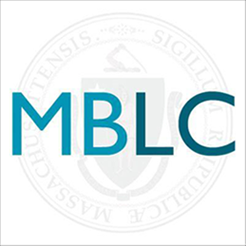
By Rob Favini, Head of Library Advisory and Development at the MBLC
One of the most interesting parts of my job involves providing outreach and advisory services to librarians, directors, trustees and friends groups. It is a unique perspective that affords me a front row seat to what’s happening in libraries across the Commonwealth. With the start of the New Year, I’ve been thinking about the important trends that I will be following in 2020. I’d like to share my top 5 in no particular order.
EBOOKS
Libraries have been dealing with challenges around eBooks for quite some time now. First there were logistical problems to solve around platforms and policy. In 2019 a new set of challenges was brought to the forefront with MacMillan Publishing’s embargo of new title access to public libraries. With consumer eBook sales slowing and library eBook circulations exploding Macmillan is making the argument that libraries hurt book sales. The proposed embargo unified libraries in opposition and resulted in dozens of letters to Macmillan’s CEO John Sargent from Massachusetts libraries and organizations and an ALA national campaign and petition. Libraries and publishers will be following this case very closely throughout 2020 as it may set a new industry standard.
LIBRARY AS SOCIAL CONNECTOR
To borrow Eric Klinenberg’s term from his book Palaces for the People, libraries continue to play the important role in maintaining social infrastructure, the glue that binds communities together. Across Massachusetts, libraries have become a driving force of social infrastructure with innovative programs and services that used to be unique but are now commonplace. Library programs and services around STEM, ESL, Citizenship, Wi-Fi hotspots, library of things, workforce development (the list can literally go on and on) are now common. In 2020 libraries will continue to adapt services to social needs as they address the ongoing opioid crisis, the 2020 Census, community food/housing insecurity, and a presidential election to name just a few.
LIBRARY TRUSTEES AND FRIENDS ARE NEEDED NOW MORE THAN EVER
The MBLC’s advisory services to library Boards of Trustees and Friends Groups covers a lot of territory from trustee orientation sessions to fielding inquiries on dozens of topics every day. The amount of activity speaks to the important role that these groups have in the promotion and advancement of public libraries. When Trustees and Friends are well informed and aligned with the goals of the library they become powerful advocates. As crucial as these allies are, there are many libraries with unfilled trustee seats, or open positions on their Friends’ boards. The health of Trustee and Friend boards directly impact the health of our libraries. Attracting active participation from all voices in the community is critical and pays big dividends. Current Trustees, Friends, and library staff should always be on the lookout for the next great addition to their boards.
THEY DIDN’T TEACH ME THAT IN LIBRARY SCHOOL!
The list of skills needed to run a successful library seems be growing at an accelerated pace. In addition to the demands created by innovated programing mentioned earlier, library managers are increasingly finding themselves in uncharted territory. Today’s library manager has to have expertise in human resources management, budget analysis, local political/regulatory process, environmental science and public relations. To make things even more complicated, every municipality is unique so even library managers with experience are challenged. The good news is that efforts in 2019 by the Massachusetts Library System with their Library Director Round Table series and the Massachusetts Library Association’s Leadership and Management Section have started a conversation and support network for library directors and managers.
LATE FINES
2019 saw a growing number of libraries go fine free in Massachusetts and across the country. Earlier in the year the American Library Association passed a resolution declaring library fines an economic barrier to library access and a form of social inequity. Many libraries have come to the conclusion that in their communities fines are not an effective way to ensure that materials are returned in a timely manner, and many make the argument that fines have become a barrier to library access disproportionately impacting younger and lower income users. Recent libraries that have announced going fine free include the Robbins library in Arlington, The Jones Library in Amherst, the Morse library in Natick, and the Burlington Public Library. In addition the Boston Public Library announced the abolishment of fines for library users under the age of 18. This is a trend that is picking up momentum, and will no doubt continue in 2020.
How are these trends impacting your library? What’s on your radar for 2020? Leave a comment and join in the conversation!
